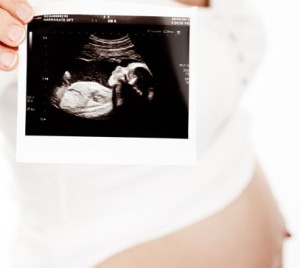 LITTLE ROCK, Ark. — A federal appeals court panel consisting of all George W. Bush appointees has declared an Arkansas state law banning abortion when a heartbeat is detected to be “unconstitutional,” upholding a lower court ruling opining the same.
LITTLE ROCK, Ark. — A federal appeals court panel consisting of all George W. Bush appointees has declared an Arkansas state law banning abortion when a heartbeat is detected to be “unconstitutional,” upholding a lower court ruling opining the same.
As previously reported, in March 2013, legislators voted to make the Human Heartbeat Protection Act law, overriding the veto of Democratic Gov. Mike Beebe. The Act required that women obtain an ultrasound prior to having an abortion, and if a heartbeat is detected past twelve weeks, the abortion may not proceed. Abortionists who violate the law would have their license revoked.
However, the ACLU of Arkansas soon threatened to file a lawsuit, and a month later, it followed through with the threat. It sued the state medical board, asking the court to act quickly to prevent “irreparable harm” to abortionists and abortion-minded mothers.
In April 2014, U.S. District Judge Susan Webber Wright, nominated to the bench by then-President George H.W. Bush, struck down the law, stating that the standard for abortion restrictions according to Roe v. Wade is whether the child is viable—meaning that he or she can survive outside of the womb—rather than whether the baby has a heartbeat.
“The Court finds as a matter of law that the 12-week abortion ban included in Act 301 prohibits pre-viability abortions and thus impermissibly infringes a woman’s 14th Amendment right to elect to terminate a pregnancy before viability,” she wrote. “The state presents no evidence that a fetus can live outside the mother’s womb at twelve weeks.”
However, she left in place the requirement that abortionists check for a heartbeat prior to an abortion and notify the mother if it is present.
The state then appealed the matter to the 8th Circuit Court of Appeals, but on Wednesday, it upheld Wright’s ruling, using the same “viability” standard. The unanimous decision was released by judges Lavenski Smith, Bobby Shepherd and Duane Benton Smith—all appointed to the bench by Bush, like Wright.
“By banning abortions after 12 weeks’ gestation, the Act prohibits women from making the ultimate decision to terminate a pregnancy at a point before viability,” it wrote. “Because the state made no attempt to refute the plaintiffs’ assertions of fact, the district court’s summary judgment order must be affirmed.”
However, the panel also noted that “scientific advancements have moved the viability point back,” so that children may survive outside of the womb earlier than in years prior.
“This case underscores the importance of the parties, particularly the state, developing the record in a meaningful way so as to present a real opportunity for the court to examine viability, case by case, as viability steadily moves back towards conception,” it wrote.
The state is now considering appealing to the U.S. Supreme Court.
“The attorney general is reviewing the opinion from the 8th Circuit and will evaluate how to proceed,” Judd Deere, spokesman for Attorney General Leslie Rutledge told Arkansas News.
Become a Christian News Network Supporter...


